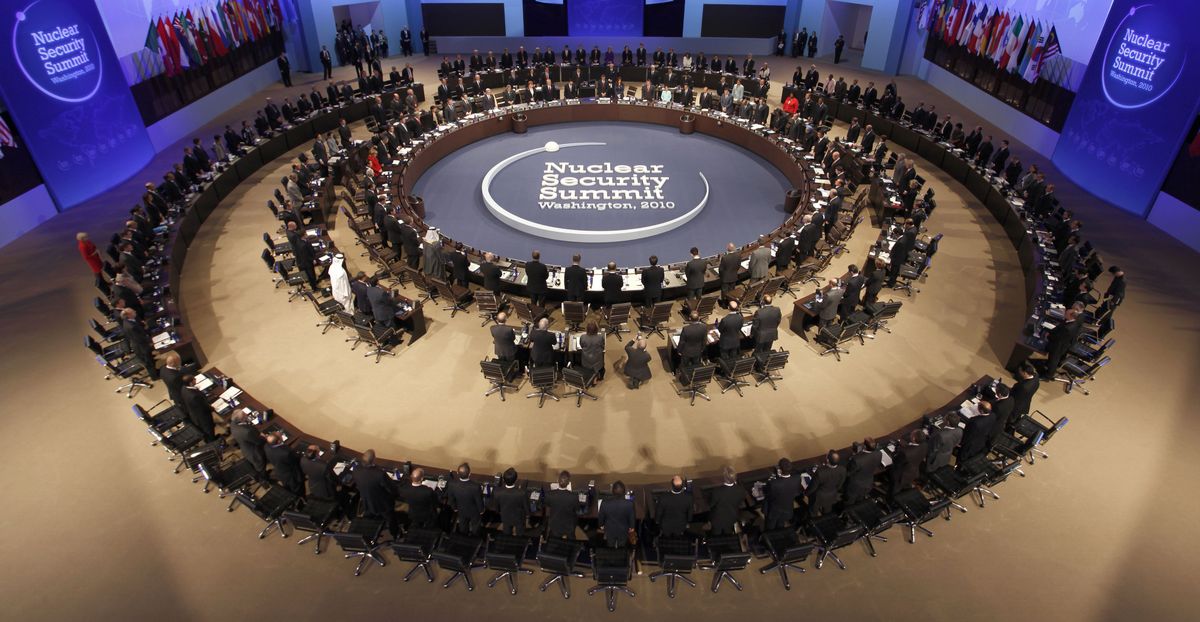Crackdown on loose nukes
Nations agree on joint effort to keep material from terrorists

WASHINGTON – The leaders of more than 40 nations, summoned to action by President Barack Obama, agreed Tuesday to a voluntary but far-reaching program to prevent thousands of tons of weapons-grade nuclear materials scattered around the world from falling into the hands of terrorists.
World leaders gathered at a two-day conference vowed an unprecedented effort to crack down on nuclear smuggling, step up the sharing of nuclear information, and develop common standards and procedures for the physical security of fissile materials.
Obama said the agreement, spelled out in a final communique, recognized a “cruel irony of history”: that after surviving a Cold War arms race and the threat of nuclear war, the world now must confront the even larger danger of nuclear terrorism.
“Terrorist networks such as al-Qaida have tried to acquire the material for a nuclear weapon, and if they ever succeed, they would surely use it,” Obama said.
The four-year plan that emerged is highly ambitious, as Obama himself acknowledged during a news conference. It necessitates a crackdown on thousands of sites – at civilian nuclear installations, military and university sites – at a likely cost of many billions of dollars.
Obama acknowledged that there is no way to enforce the agreement except through the good intentions of world leaders who, he said, now share his view of the urgency of the program.
“We’re relying on good will on the part of those who are signatories,” Obama said “I believe they take their commitments very seriously.”
The communique acknowledges the rights of countries to pursue peaceful uses of nuclear power, a principle important to many developing countries. Indeed, many countries may take the view that international pressure to safeguard nuclear materials infringes on their rights to develop nuclear power.
Even as the agreement was discussed, Obama and other United States officials were pressing countries on the sidelines to cooperate in preparation of a new round of United Nations Security Council sanctions against Iran.
The nuclear security program sets out a series of objectives for participating countries.
They are urged to ratify two international treaties on the handling of nuclear materials. They also are asked to convert research reactors that use highly enriched uranium – which can be used in nuclear weapons – to low-enriched uranium.
The security program envisions that wealthier nations will help defray the cost of the effort for poorer ones. The United States has budgeted $3 billion in the current fiscal year for better securing nuclear material.
There are 1,600 tons of high enriched uranium and 500 tons of plutonium at risk in sites around the world, experts say, enough to build 100,000 to 120,000 nuclear warheads. The highly enriched uranium is preferred by terrorist organizations because uranium-based nuclear bombs have a relatively straightforward design.
U.S. officials briefed during the conference on the efforts of al-Qaida to obtain nuclear materials. The terror group has often approached other groups to try to obtain fissile material, and has often been swindled by criminals.
U.S. officials announced that there will be another nuclear security summit in two years in South Korea.